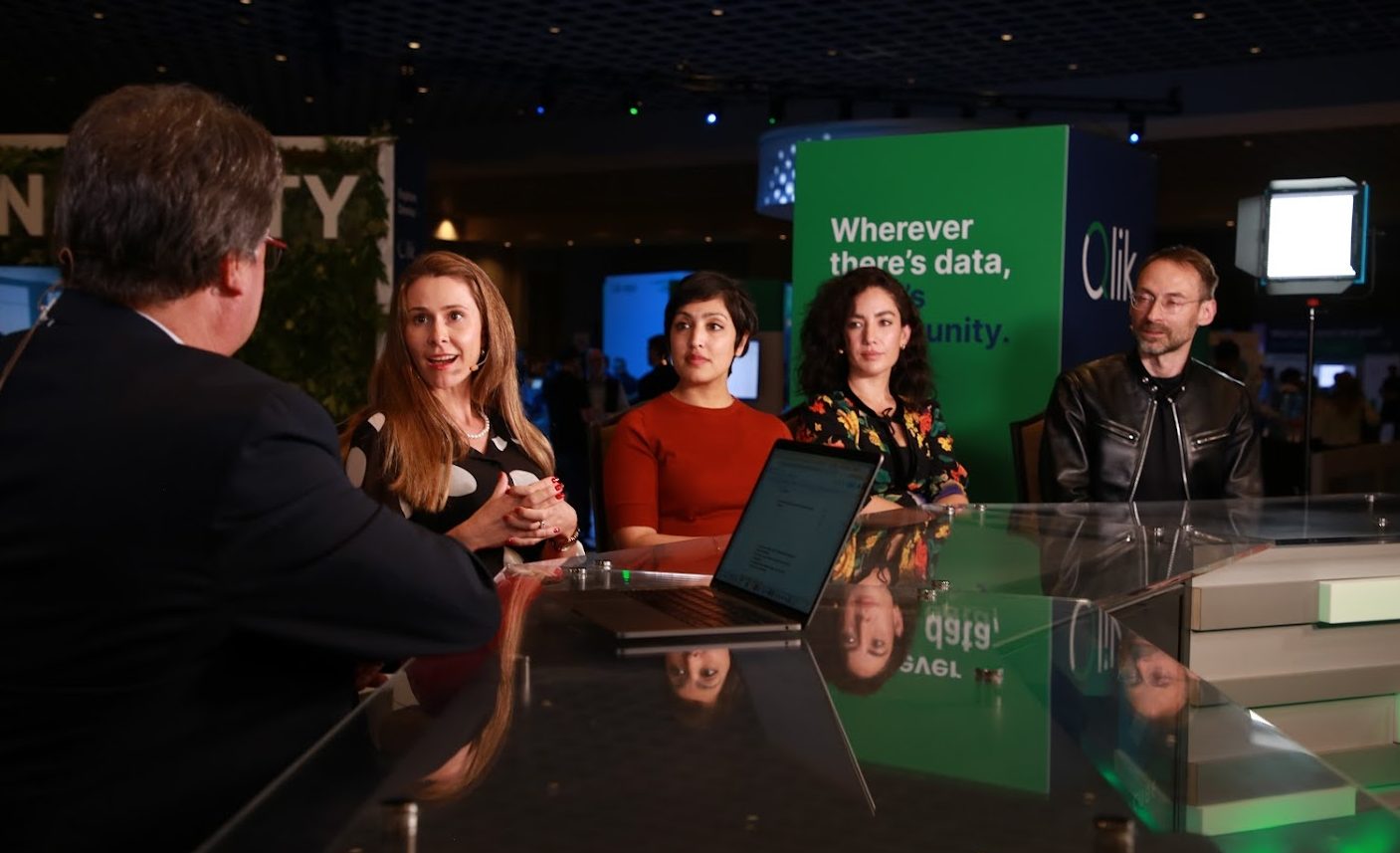 AI
AI
 AI
AI
 AI
AI
In January, QlikTech International AB announced the formation of its inaugural AI Council, a set of four advisors with a mission to accelerate the responsible development of the Qlik AI-driven product portfolio.
The council’s members were drawn from a community of AI experts and empowered to guide the company’s R&D direction and foster ethical and responsible use of Qlik’s AI.

Members of the Qlik AI Council talk about their mission during theCUBE’s coverage of Qlik Connect.
“Technology, which has already changed and so profoundly impacted our lives and economic realities over the past 30 years in particular, is going to touch the lives of billions of people in an extremely personal way,” said AI Council member Nina Schick (pictured, second from right), chief executive officer of Tamang Ventures Ltd. “It’s going to become a highly political and politicized issue. This isn’t only about business transformation, but societal transformation and the issues that you raise about one’s own digital sovereignty.”
Schick spoke with theCUBE’s John Furrier, theCUBE Research executive analyst, at Qlik Connect, during an exclusive broadcast on theCUBE, SiliconANGLE Media’s livestreaming studio. She was joined by fellow AI Council members Rumman Chowdhury (center), co-founder and chief executive officer of Humane Intelligence; Kelly Forbes (second from left), executive director of the AI Asia Pacific Institute; and Michael Bronstein (far right), DeepMind professor of AI at the University of Oxford. They discussed the impact of AI on the world’s society and specific ways Qlik can guide its responsible use. (* Disclosure below.)
One challenge confronting the AI Council is that the AI train has already progressed fairly rapidly down the track. This has led experienced observers such as Oxford’s Bronstein to look towards protecting human creative skills.
“My concern, if we’re talking about slightly apocalyptic scenarios, is if we get used to AI especially in creative intellectual tasks like creative writing or maybe artistic work, that we will lose our skills,” Bronstein said. “To me this is scary. Do we want to live in a world where all the cool stuff is done by machines?”
For Forbes, AI has the potential to make a significant impact on critical areas such as global climate change and finding ways to accelerate goals that will ultimately protect the planet.
“We would like to see AI being deployed in sectors that really matter,” Forbes said. “In climate change, we look at sustainable goals where we have very little time to accomplish those goals. That’s where AI comes in because AI has the potential to accelerate that.”
Responsible use of AI could also contribute to greater self-reliance, according to Chowdhury, who envisions an opportunity to let users take more responsibility and control for how AI is managed.
“With generative AI we have an increased ability to engage with people as part of the no-code revolution,” Chowdhury said. “Something that I am advocating for in AI is the ‘right to repair.’ What does it mean for you and me and Kelly and Nina and Michael to individually repair and fix our own AI systems and how can we make that accessible to everybody on earth?”
Here’s the complete video interview, part of SiliconANGLE’s and theCUBE Research’s coverage of Qlik Connect:
(* Disclosure: TheCUBE is a paid media partner for Qlik Connect. Neither QlikTech International AB, the sponsor of theCUBE’s event coverage, nor other sponsors have editorial control over content on theCUBE or SiliconANGLE.)
Support our mission to keep content open and free by engaging with theCUBE community. Join theCUBE’s Alumni Trust Network, where technology leaders connect, share intelligence and create opportunities.
Founded by tech visionaries John Furrier and Dave Vellante, SiliconANGLE Media has built a dynamic ecosystem of industry-leading digital media brands that reach 15+ million elite tech professionals. Our new proprietary theCUBE AI Video Cloud is breaking ground in audience interaction, leveraging theCUBEai.com neural network to help technology companies make data-driven decisions and stay at the forefront of industry conversations.